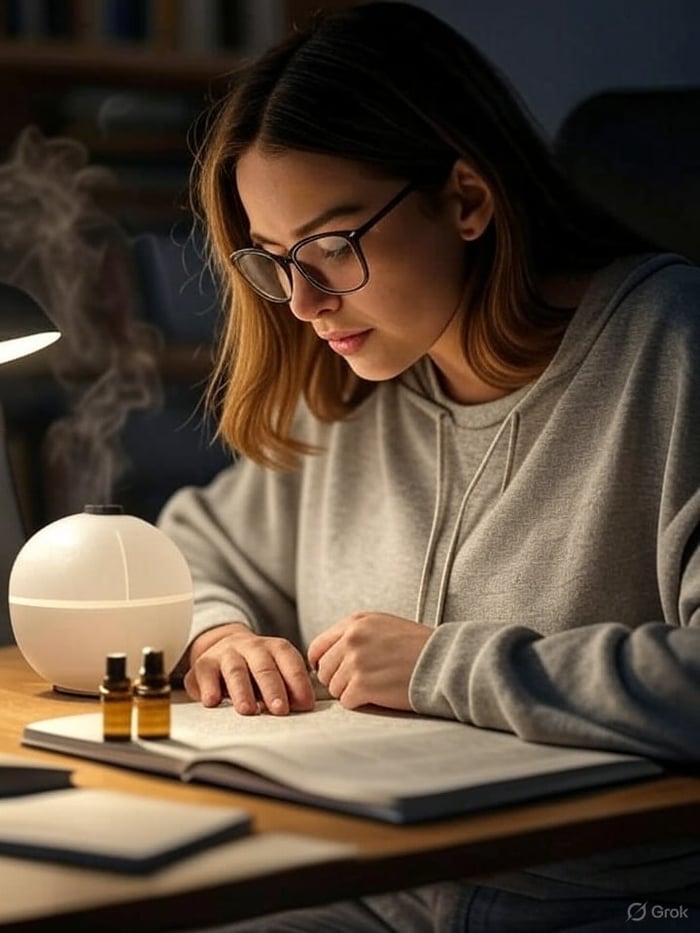Table of Contents
In today's fast-paced world, maintaining sharp memory and unwavering focus can feel like an uphill battle. Whether you're juggling work deadlines, studying for exams, or simply trying to stay mentally agile as you age, cognitive challenges are all too common. But what if nature held the key to enhancing your brainpower? Essential oils, derived from plants through distillation or cold-pressing, have been used for centuries in traditional medicine to support mental clarity and recall. From the invigorating scent of peppermint to the herbaceous aroma of rosemary, these potent extracts can influence brain function through aromatherapy, topical application, and more.
This guide dives deep into using essential oils to boost memory and focus. Backed by scientific studies and practical tips, we'll explore the best oils, their mechanisms, safe usage methods, and DIY recipes. By the end, you'll have a toolkit to naturally sharpen your mind and potentially rank your cognitive health at the top of your priorities. Let's unlock the aromatic path to better brain performance.
Understanding Essential Oils and Their Role in Brain HealthEssential oils are concentrated plant extracts that capture the essence—aroma and therapeutic compounds—of herbs, flowers, fruits, and trees. Unlike synthetic fragrances, they contain bioactive molecules like terpenes, phenols, and esters that interact with the body's systems, particularly the brain. When inhaled, these compounds travel via the olfactory nerves directly to the limbic system, the brain's emotional and memory center. This bypasses the digestive system, allowing quick effects on mood, cognition, and stress levels.
Why do essential oils matter for memory and focus? Cognitive function relies on neurotransmitters like acetylcholine (key for memory) and dopamine (for motivation). Stress, poor sleep, and inflammation can disrupt these, leading to brain fog. Essential oils act as natural modulators: some inhibit enzymes that break down neurotransmitters, others reduce oxidative stress, and many promote relaxation to clear mental clutter. A 2023 study from UC Irvine highlighted how nightly exposure to essential oils like rose and lavender improved cognitive capacity by 226% in older adults, suggesting olfactory enrichment strengthens neural pathways.Research from PubMed and other sources shows essential oils can alleviate fatigue, enhance working memory, and even support brain volume in aging individuals. For instance, continuous inhalation of rose oil increased gray matter volume, potentially preventing dementia. While not a cure-all, these oils offer a low-risk, complementary approach to cognitive enhancement, especially when combined with lifestyle habits like exercise and sleep.
The Science Behind Aromatherapy for Memory and FocusAromatherapy isn't just pleasant scents—it's grounded in neuroscience. The olfactory bulb connects directly to the hippocampus (memory hub) and amygdala (emotion center), explaining why smells evoke strong recollections. Studies confirm this: a 2017 trial found rosemary oil improved short-term image and numerical memory in students by up to 7.5%. Similarly, peppermint's menthol stimulates the hippocampus, boosting alertness and reducing cognitive fatigue.
Key mechanisms include:
- Neurotransmitter Support: Rosemary's 1,8-cineole prevents acetylcholine breakdown, mimicking dementia drugs.
- Anti-Inflammatory Effects: Oils like frankincense reduce brain inflammation, linked to cognitive decline.
- Antioxidant Protection: Lemon and peppermint combat free radicals that damage neurons.
- Stress Reduction: Lavender activates GABA receptors, calming the mind for better focus.
A 2023 review in Frontiers in Neuroscience noted that nightly olfactory enrichment with multiple scents improved verbal memory and neural integrity in older adults. Another study in Therapeutic Advances in Psychopharmacology linked rosemary aroma to better cognitive performance via blood levels of active compounds. However, results vary; while animal and small human trials are promising, larger RCTs are needed. Subjective biases in media reports (e.g., exaggerated 75% memory boosts from rosemary) highlight the need for balanced views.Despite limitations, essential oils show no major side effects in studies, making them a safe starting point for cognitive support.
Top Essential Oils for Boosting Memory and FocusBased on scientific evidence, here are the most effective essential oils. We'll cover their benefits, supporting research, and usage tips.
1. Rosemary Essential Oil: The Memory Herb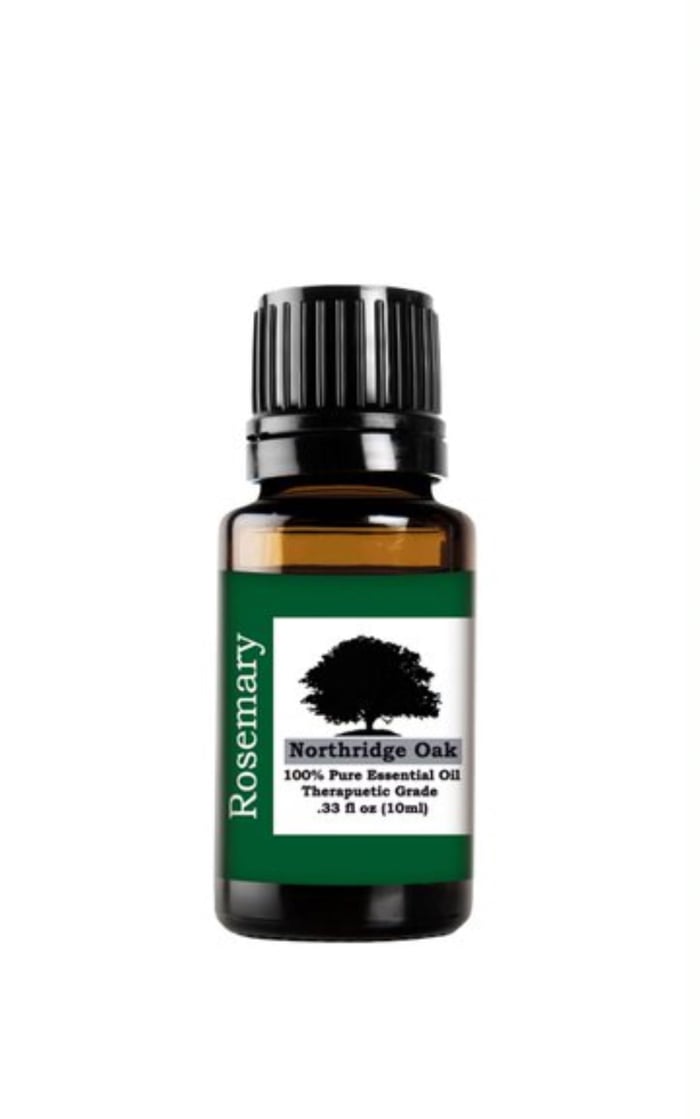 Rosemary (Rosmarinus officinalis) has been dubbed the "herb of remembrance" since ancient Greece, where students wore it during exams. Modern science backs this: a 2017 study on 53 adolescents found rosemary oil inhalation significantly enhanced short-term image and numerical memory compared to controls. Participants recalled more details after exposure, with no sex differences.A meta-analysis of lab animal studies confirmed rosemary's cognition-enhancing effects across tasks like maze navigation and object recognition, stronger in impaired models (e.g., scopolamine-induced amnesia). Human trials, including one on elderly participants, showed improved memory speed and reduced anxiety. The key compound, 1,8-cineole, correlates with better performance by boosting acetylcholine.For focus, rosemary stimulates alertness without jitters. A 2012 study linked its aroma to faster cognitive processing. Use it during study sessions to sharpen recall—diffuse 3-5 drops for 30 minutes.
Rosemary (Rosmarinus officinalis) has been dubbed the "herb of remembrance" since ancient Greece, where students wore it during exams. Modern science backs this: a 2017 study on 53 adolescents found rosemary oil inhalation significantly enhanced short-term image and numerical memory compared to controls. Participants recalled more details after exposure, with no sex differences.A meta-analysis of lab animal studies confirmed rosemary's cognition-enhancing effects across tasks like maze navigation and object recognition, stronger in impaired models (e.g., scopolamine-induced amnesia). Human trials, including one on elderly participants, showed improved memory speed and reduced anxiety. The key compound, 1,8-cineole, correlates with better performance by boosting acetylcholine.For focus, rosemary stimulates alertness without jitters. A 2012 study linked its aroma to faster cognitive processing. Use it during study sessions to sharpen recall—diffuse 3-5 drops for 30 minutes.
2. Peppermint Essential Oil: The Alertness Booster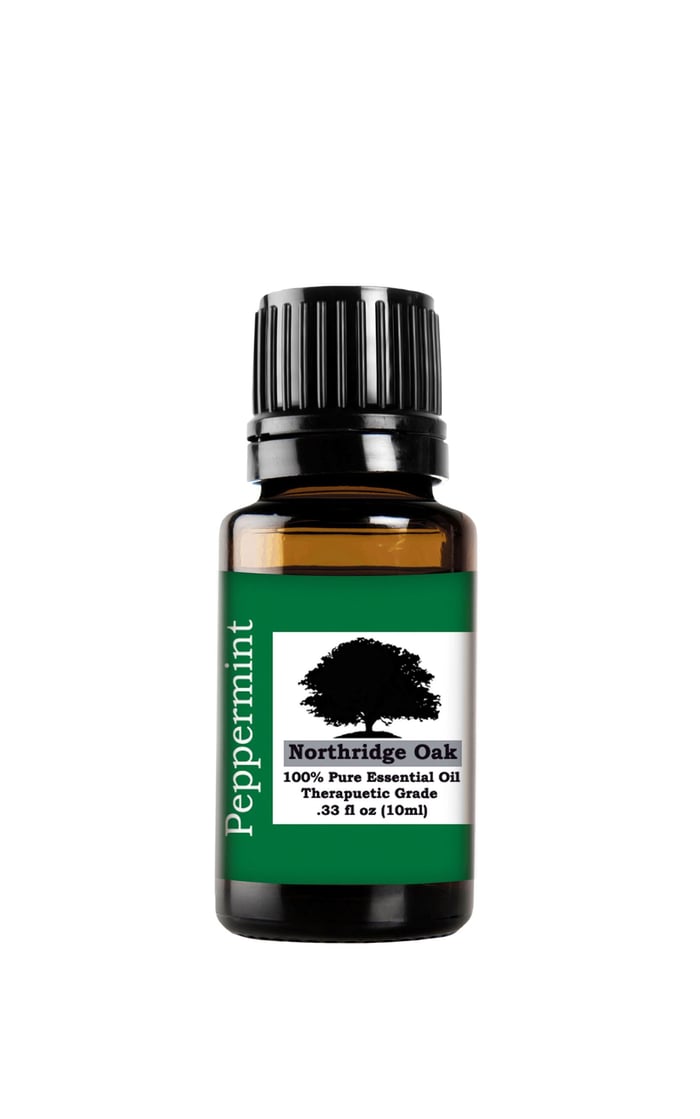 Peppermint (Mentha piperita) delivers a cool, invigorating hit that combats mental fatigue. A 2008 study found its aroma enhanced memory and alertness in healthy adults, outperforming ylang-ylang. Inhaling peppermint improved cognitive tasks by stimulating the hippocampus, the brain's learning center.For focus, peppermint shines: a 2013 trial showed it prevented exercise-induced fatigue and boosted performance, translating to mental stamina. A 2022 study on APP/PS1 mice (Alzheimer's model) revealed peppermint oil improved learning and memory by reducing oxidative stress and restoring antioxidants like SOD and GSH-PX. Human evidence includes reduced frustration and increased alertness in drivers exposed to peppermint scent.Peppermint's menthol enhances blood flow and oxygen to the brain, ideal for concentration. Diffuse during work or add to a roller for temples—expect quicker thinking and less brain fog.
Peppermint (Mentha piperita) delivers a cool, invigorating hit that combats mental fatigue. A 2008 study found its aroma enhanced memory and alertness in healthy adults, outperforming ylang-ylang. Inhaling peppermint improved cognitive tasks by stimulating the hippocampus, the brain's learning center.For focus, peppermint shines: a 2013 trial showed it prevented exercise-induced fatigue and boosted performance, translating to mental stamina. A 2022 study on APP/PS1 mice (Alzheimer's model) revealed peppermint oil improved learning and memory by reducing oxidative stress and restoring antioxidants like SOD and GSH-PX. Human evidence includes reduced frustration and increased alertness in drivers exposed to peppermint scent.Peppermint's menthol enhances blood flow and oxygen to the brain, ideal for concentration. Diffuse during work or add to a roller for temples—expect quicker thinking and less brain fog.
3. Lavender Essential Oil: Calming Focus Enhancer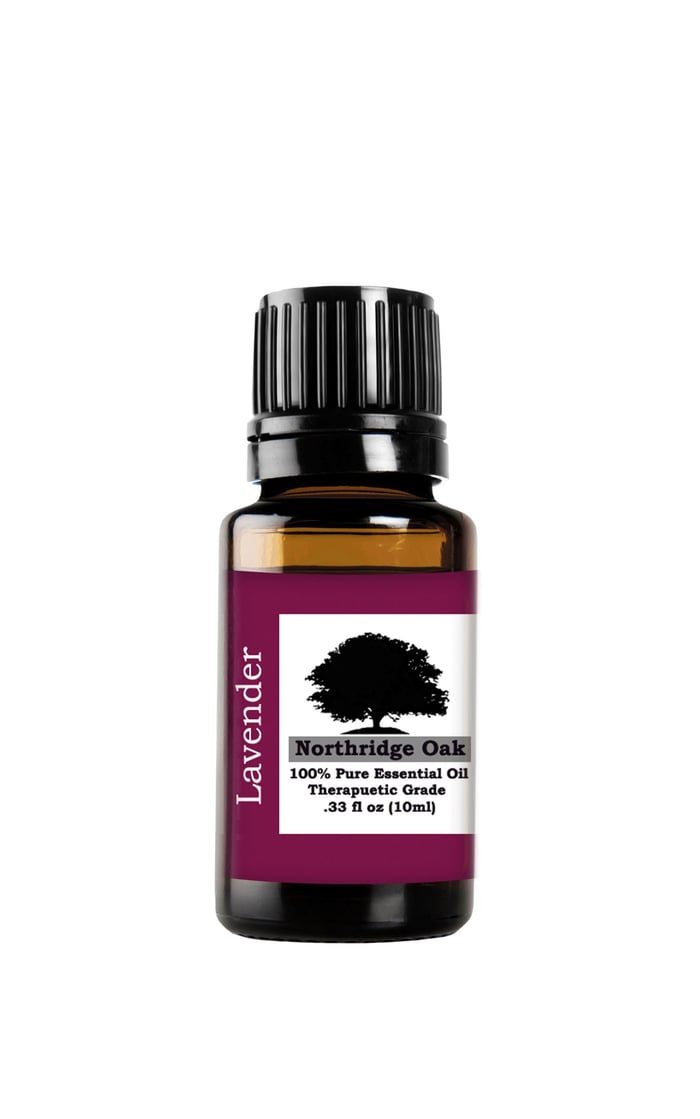 Lavender (Lavandula angustifolia) is renowned for relaxation, but it also boosts cognition. A 2022 study on MS patients found lavender inhalation improved working memory significantly. Another trial with secondary school students showed it enhanced image memory, though it slightly hindered numerical recall.For focus, lavender reduces anxiety that scatters attention. A 2023 review linked it to better attentional shifting and accuracy via EEG changes—increased theta/alpha waves for relaxation, beta for clear thinking. In older adults, nightly lavender exposure improved sleep and daytime cognition.Its linalool activates GABA, easing stress without sedation. Use for evening wind-downs to consolidate memories overnight, or diffuse during tasks needing calm concentration.
Lavender (Lavandula angustifolia) is renowned for relaxation, but it also boosts cognition. A 2022 study on MS patients found lavender inhalation improved working memory significantly. Another trial with secondary school students showed it enhanced image memory, though it slightly hindered numerical recall.For focus, lavender reduces anxiety that scatters attention. A 2023 review linked it to better attentional shifting and accuracy via EEG changes—increased theta/alpha waves for relaxation, beta for clear thinking. In older adults, nightly lavender exposure improved sleep and daytime cognition.Its linalool activates GABA, easing stress without sedation. Use for evening wind-downs to consolidate memories overnight, or diffuse during tasks needing calm concentration.
4. Frankincense Essential Oil: Clarity and Neural Protector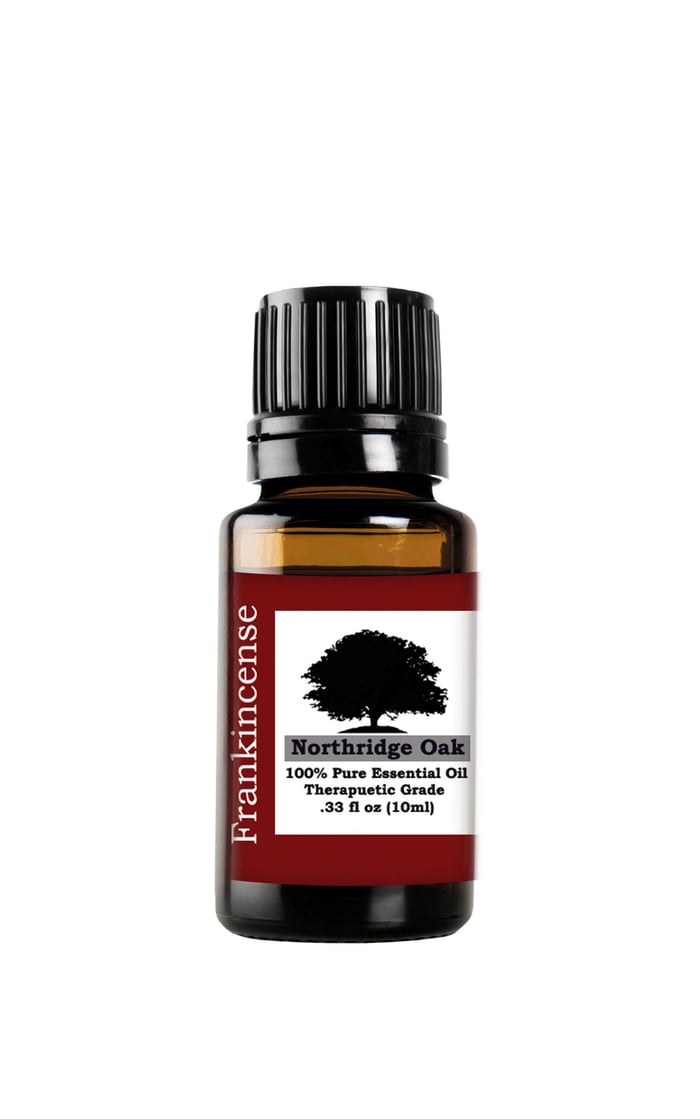 Frankincense promotes mental clarity and brain health. A 2019 study found 4 weeks of frankincense improved explicit motor memory and BDNF (brain-derived neurotrophic factor) in elderly men, aiding neuroplasticity.Its boswellic acids reduce inflammation, protecting against cognitive decline. Animal studies show it activates TRPV3 channels for antidepressant effects, while a 2020 trial in epileptic rats prevented neurochemical damage. For focus, frankincense grounds the mind—diffuse for meditation or apply diluted to wrists for sustained attention.
Frankincense promotes mental clarity and brain health. A 2019 study found 4 weeks of frankincense improved explicit motor memory and BDNF (brain-derived neurotrophic factor) in elderly men, aiding neuroplasticity.Its boswellic acids reduce inflammation, protecting against cognitive decline. Animal studies show it activates TRPV3 channels for antidepressant effects, while a 2020 trial in epileptic rats prevented neurochemical damage. For focus, frankincense grounds the mind—diffuse for meditation or apply diluted to wrists for sustained attention.
5. Lemon Essential Oil: Uplifting Concentration Aid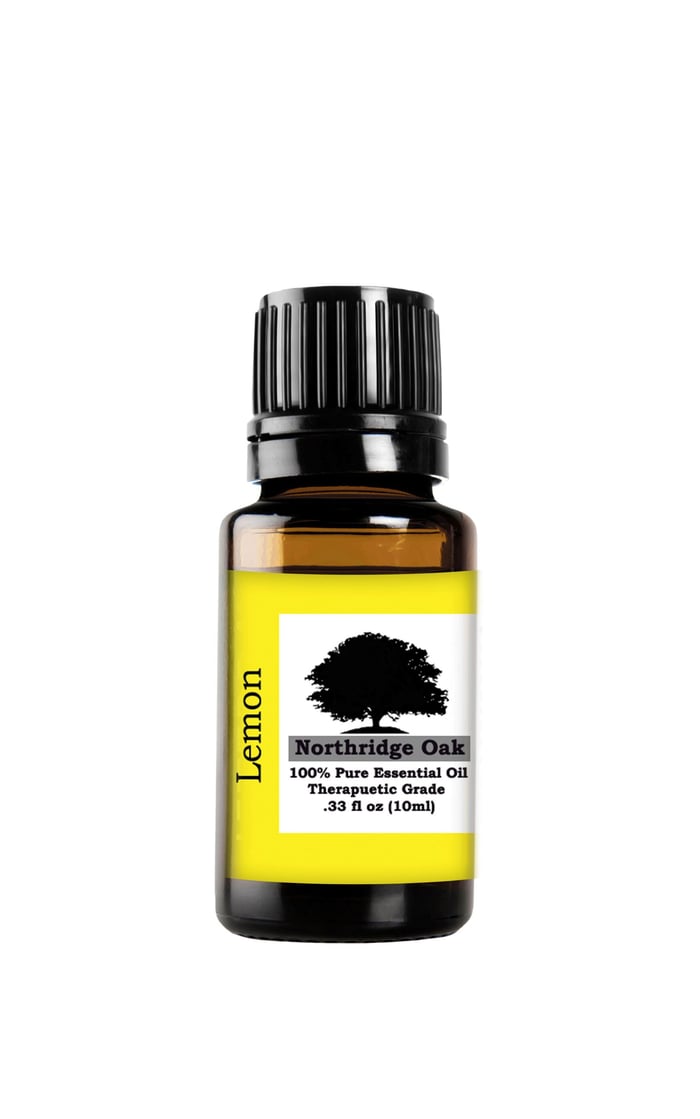 Lemon (Citrus limon) refreshes the mind for better focus. A 2006 study found its aroma more effective than lavender for stress relief in mice, improving mood and cognition. In humans, inhaling lemon reduced anxiety post-surgery and enhanced cognitive performance.Lemon's limonene boosts dopamine and serotonin, combating fatigue. A 2017 study confirmed its antimicrobial properties aid oral health, indirectly supporting brain via gut-brain axis. For concentration, diffuse during afternoons to clear fog—its citrus zing rivals caffeine.
Lemon (Citrus limon) refreshes the mind for better focus. A 2006 study found its aroma more effective than lavender for stress relief in mice, improving mood and cognition. In humans, inhaling lemon reduced anxiety post-surgery and enhanced cognitive performance.Lemon's limonene boosts dopamine and serotonin, combating fatigue. A 2017 study confirmed its antimicrobial properties aid oral health, indirectly supporting brain via gut-brain axis. For concentration, diffuse during afternoons to clear fog—its citrus zing rivals caffeine.
Essential Oil | Primary Benefit | Key Compound | Evidence Level | Best For |
|---|---|---|---|---|
Memory Enhancement | 1,8-Cineole | High (Human & Animal Studies) | Studying, Recall | |
Alertness & Focus | Menthol | High (Human Trials) | Work, Fatigue | |
Working Memory & Calm | Linalool | Moderate (Clinical Trials) | Anxiety-Induced Fog | |
Neural Protection & Clarity | Boswellic Acids | Moderate (Animal & Small Human) | Meditation, Aging | |
Mood & Concentration | Limonene | Moderate (Stress Studies) | Daily Uplift |
How to Use Essential Oils Safely and EffectivelyTo harness these benefits, choose high-quality, pure oils (look for 100% therapeutic grade). Start with inhalation: Add 3-5 drops to a diffuser for 20-30 minutes. Topical use requires dilution—mix 1-2 drops with 1 tsp carrier oil (e.g., jojoba) for wrists or temples. Avoid ingestion unless food-grade and under guidance.For memory: Diffuse rosemary during learning, then lavender at night for consolidation. For focus: Inhale peppermint pre-task. Combine oils in blends for synergy—e.g., rosemary + lemon for study sessions.Track effects with a journal; effects vary by individual. Integrate with habits like mindfulness for amplified results.
DIY Recipes and Blends for Memory and Focus
Focus Roller Blend
- 5 drops Peppermint
- 3 drops Lemon
- 2 drops Rosemary
- 10ml carrier oil Roll on pulse points for instant alertness.
Memory Diffusion Blend
- 4 drops Rosemary
- 3 drops Lavender
- 2 drops Frankincense Diffuse for 30 minutes while studying—enhances recall per studies.
Calming Bath Soak
- 4 drops Lavender
- 3 drops Lemon
- 1 cup Epsom salts Soak to reduce stress, improving overnight memory processing.
These recipes use evidence-based ratios for safety and efficacy.
Potential Risks and PrecautionsEssential oils are potent—overuse can cause irritation. Dilute topically; patch-test first. Photosensitive oils like lemon require sun avoidance. Pregnant individuals, children, and those with epilepsy should consult doctors. Asthmatics: Inhale cautiously. No ingestion without professional advice. Sources like Mayo Clinic emphasize quality to avoid adulterated products.
Conclusion: Elevate Your Mind with Essential OilsUsing essential oils to boost memory and focus offers a natural, accessible way to enhance cognition. From rosemary's memory magic to peppermint's focus fire, these plant powers, supported by studies, can transform your mental game. Start small, stay consistent, and pair with healthy habits for optimal results. Your brain deserves this aromatic upgrade—unlock sharper focus and lasting recall today.
FAQs
What essential oils are best for improving memory?
The top essential oils for memory enhancement include rosemary, peppermint, lavender, and frankincense. Rosemary stands out due to its compound 1,8-cineole, which supports acetylcholine levels for better recall, as shown in multiple studies. Peppermint aids short-term memory by stimulating the hippocampus, while lavender promotes relaxation for improved retention during sleep. A 2023 study even suggested nightly exposure to a mix of scents like these could boost cognitive capacity by up to 226% in older adults.
Which essential oil is the best for focus and concentration?
Peppermint is widely regarded as the top essential oil for focus, thanks to its menthol content that enhances alertness and mental clarity without causing jitters. Rosemary and lemon are close runners-up, with rosemary improving cognitive processing speed and lemon uplifting mood to combat afternoon slumps. Recent 2025 research highlights peppermint's role in boosting attention in both students and professionals.
What essential oils are good for concentration and studying?
For studying, a blend of peppermint, rosemary, and lemon works wonders—peppermint for sustained energy, rosemary for memory retention, and lemon for motivation. Vetiver and eucalyptus are also excellent for deeper concentration, as they ground the mind and clear mental fog. According to expert guides, these oils can enhance learning ability, with peppermint showing benefits in animal studies for cognitive tasks.
How do I safely use essential oils for memory and focus?
Always dilute essential oils before topical application (1-2 drops in a teaspoon of carrier oil like jojoba) and use a diffuser for inhalation to avoid irritation. Start with short sessions (10-15 minutes) to test tolerance, and never ingest without professional guidance. High-quality, pure oils are crucial to prevent adulteration. Recent FAQs emphasize patch-testing and consulting a doctor if pregnant or with health conditions.
Are there any side effects of using essential oils for cognitive benefits?
Side effects are rare when used properly but can include skin irritation, headaches, or allergic reactions, especially with undiluted oils or sensitive skin. Photosensitive oils like lemon should be avoided before sun exposure. Overuse might lead to nausea. Studies confirm minimal risks in controlled use, but those with asthma or epilepsy should consult a healthcare provider.
How long does it take to see benefits from essential oils for memory and focus?
Inhalation can provide immediate effects, like increased alertness within minutes from peppermint, while consistent use (daily for 2-4 weeks) yields noticeable improvements in memory and sustained focus. Nightly aromatherapy routines have shown cognitive gains in as little as one month in older adults.
Can essential oils help with conditions like ADHD, dementia, or brain fog?
Essential oils show promise for mild brain fog and focus issues in ADHD, with peppermint and rosemary aiding attention, but they're not a substitute for medical treatment—always consult a doctor. For dementia, lavender and rosemary may support memory care by reducing stress and enhancing recall, as per 2025 insights on aromatherapy in senior living.

